For the love of the beat — and the dying art of vinyl mixing
Halifax DJ duo spark Saturday night fever at monthly Discotheque event
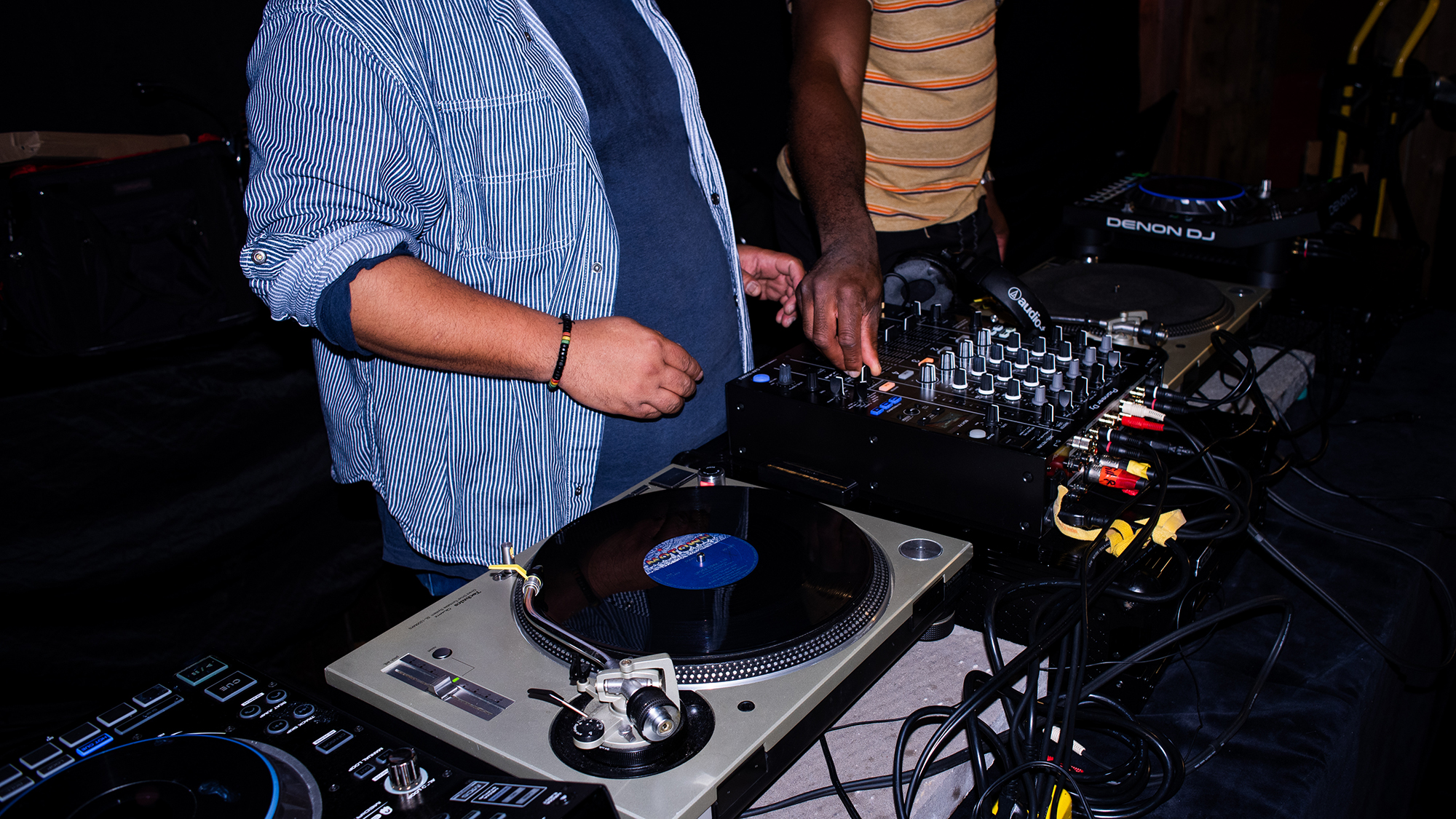
caption
Vinyl mixing requires a wide variety of records to keep the music flowing through the night.The dance floor of the dimly lit Seahorse Tavern is thick with grooving bodies and the scent of sweat. A syncopated bassline of disco rings out — spun on vinyl records by Halifax DJs Century Samuel and Douvet.
Jonathan Samuel and Brandon Tolliver are the DJs behind Discotheque, a monthly night of vinyl mixing at the Seahorse Tavern. The night showcases disco, funk and soul — think Diana Ross, Crown Heights Affair and D’Angelo.
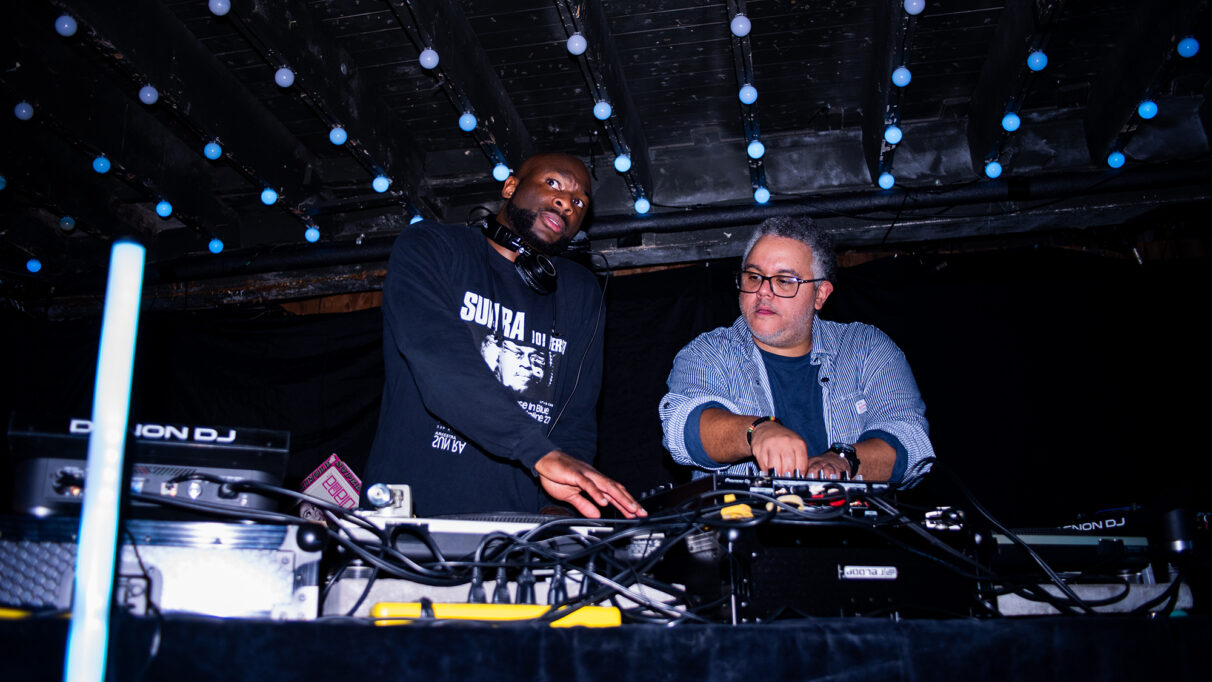
caption
DJs Douvet and Century Samuel mix disco live from the Seahorse Tavern last Saturday evening.Samuel and Tolliver met through the Halifax music industry — one night, Tolliver DJed an after-hours event where Samuel was volunteering. Samuel had recently heard the 35 year-old song The Glow of Love by Change and Luther Vandross, which he says is a song that “nobody cares about except for people that were around back then.”
When Tolliver played it at the party, “I ran out and I’m like, ‘I’ve been listening to this song all week, why are you playing this right now?’ And that was the genesis of everything that’s happened,” said Samuel.
I ran out and I’m like, ‘I’ve been listening to this song all week, why are you playing this right now?’ And that was the genesis of everything that’s happened.
Jonathan Samuel
Discotheque materialized out of a shared love for disco, and fostered their obsession with vinyl.
The DJs were introduced to vinyl via their parents’ collections. Samuel recalls staring up at his father’s shelf of records as a child, unable to read the titles, “just ‘cause I’m so little.”
Tolliver remembers walking past his father’s disorganized collection when hunting for confiscated toys and Christmas gifts in the crawl space in his family home. The faces on the albums piqued his interest.
Both men have since incorporated their parents’ collections into their own.
“Those records allowed me to continue something of a lineage,” said Tolliver. “(They) have, I’m sure, many stories to tell, most of which I’m not aware of, but they carry with them a certain story that I think is completely lost with digital music.”
The cost of analog
Vinyl mixing is unlike digital DJ’ing. Vinyl DJs use records, turntables, and a mixer to manually blend between songs.
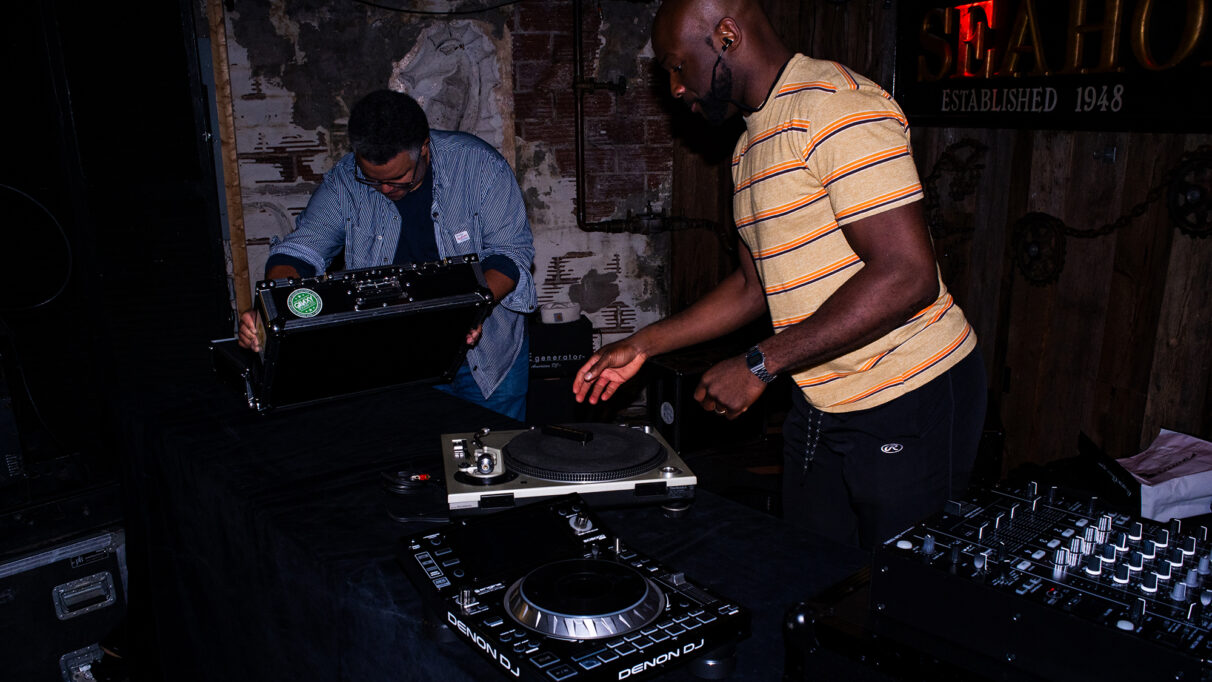
caption
DJs Century Samuel and Douvet set up their wide range of vinyl mixing equipment for Discotheque Halifax.“To be able to touch something physical and to match those (beats per minute) … it’s like the difference between driving an automatic and a manual car,” said Samuel.
The art of vinyl mixing is inconvenient. “We live in a world where vinyl DJing is kind (of) a rarity, most spaces aren’t really set up for vinyl DJ,” said Tolliver. Clubs and event venues rarely carry the equipment required to mix, especially in Halifax.
To mix, Samuel and Tolliver drag crates of vinyl, turntables, mixers, and cement slabs between venues. It takes them more than 90 minutes to set up.
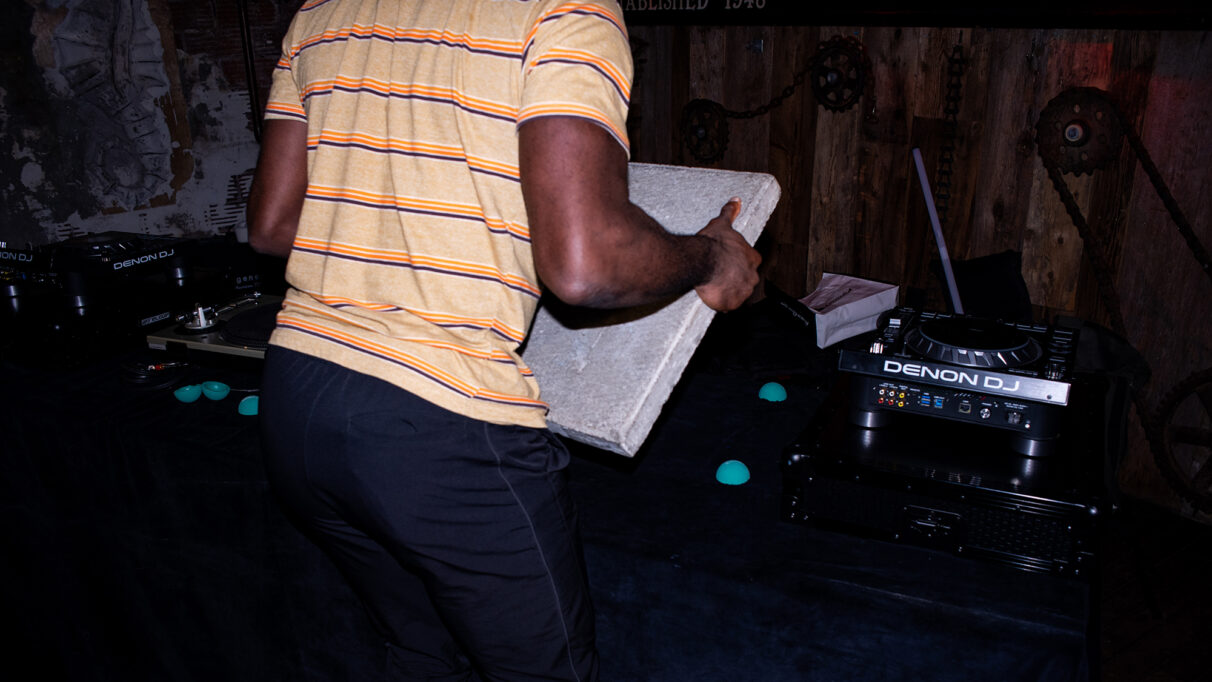
caption
DJ Douvet places a concrete slab underneath their turntable to avoid needle scratching from the vibrations of their sound system.Since most modern event spaces aren’t designed to accommodate vinyl mixing, DJ booths are not heavy enough to absorb the sound systems. The cement slabs are placed underneath the turntable to reduce vibration and consequent humming noise.
The DJs have a vast collection of 12-inch vinyl, and Technic turntables bought second-hand from Japan.
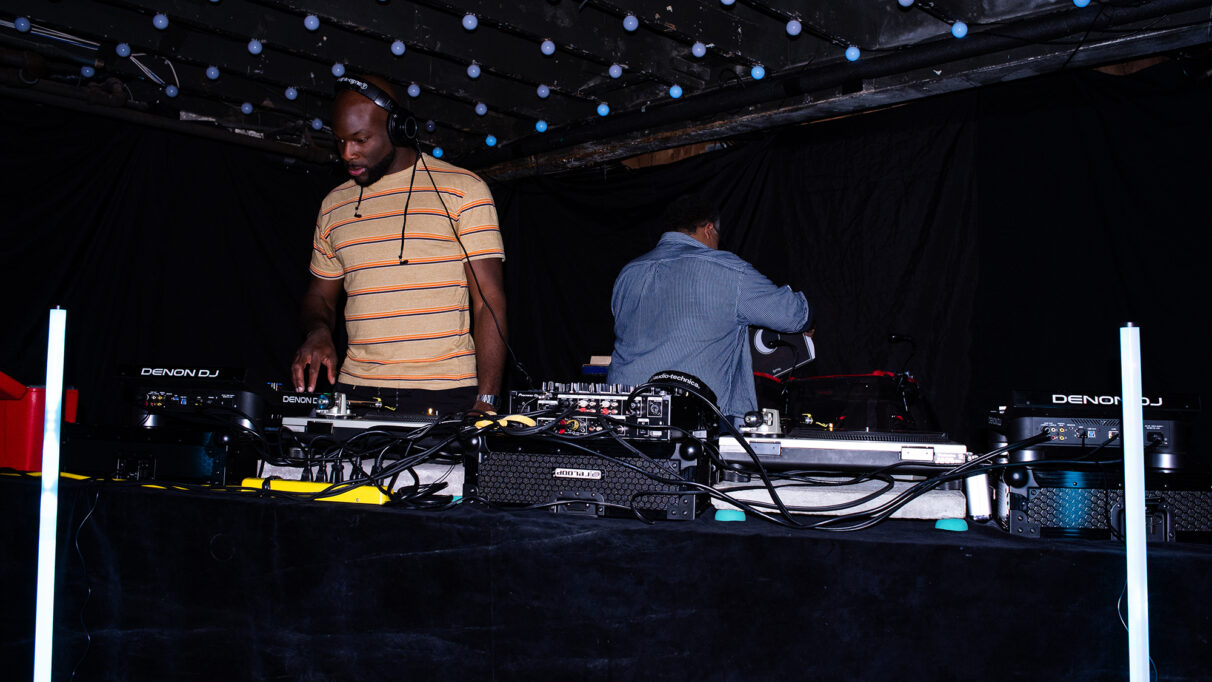
caption
DJs Douvet and Century Samuel test their outside mix on their sound system at the Seahorse tavern.They estimate the amount of vinyl required based on the length of the event. The team divides the number of event minutes by the average song length and then double it, which allows them to choose songs based on what the crowd wants.
“We’re trying at best to kind of shape the night a certain way. And it’s a give and take based on how the crowds are reacting and versus what sort of sounds we intended to present, and it doesn’t always go the way you play it,” said Tolliver.
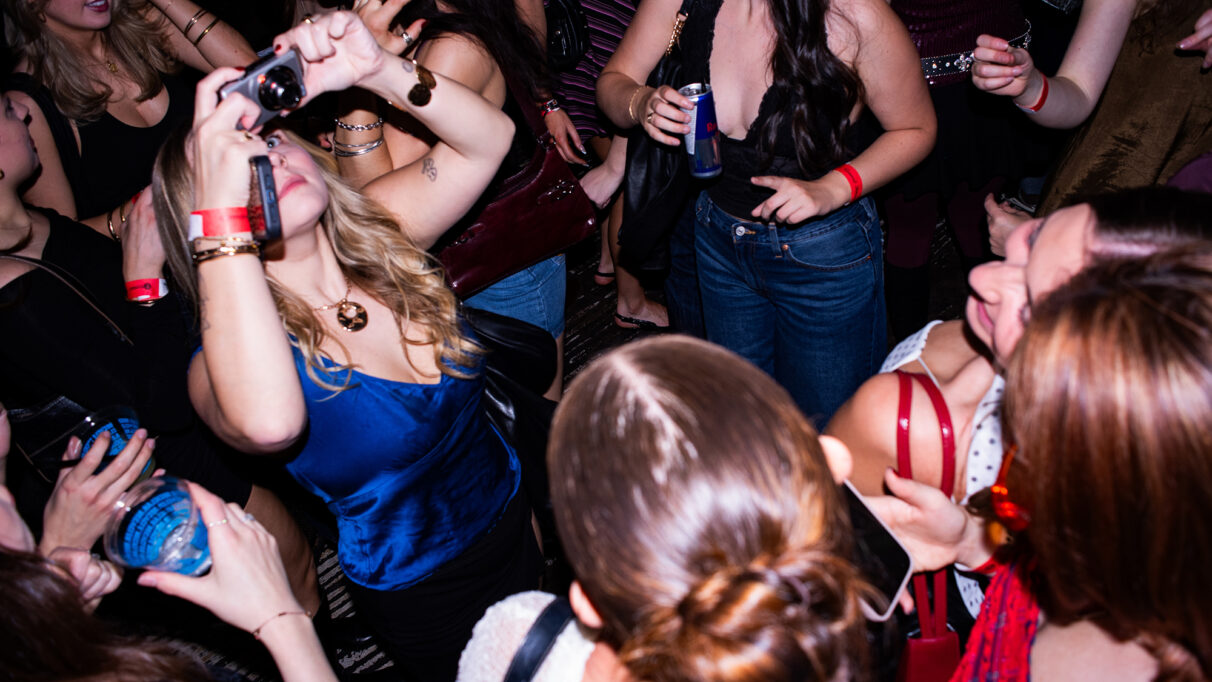
caption
Discotheque Halifax was a night for dancing and disco for all of its attendees.The margin of error
With more room for error, vinyl DJing can be more challenging than digital.
“There’s kind of a messiness with DJing with vinyl compared to digital, where everything is kind of programmed in the grid,” said Tolliver. “With vinyl, there’s something about it that resists programming every second of your set.”
Modern dance music is recorded with the help of an electronic click track. Drummers listen to a steady metronome while recording to remain in line with the beat, never deviating from 120 beats per minute.
Older music wasn’t recorded this way — a drummer’s beat varies between measures. This makes it difficult to mix songs, because there’s no unified beat.
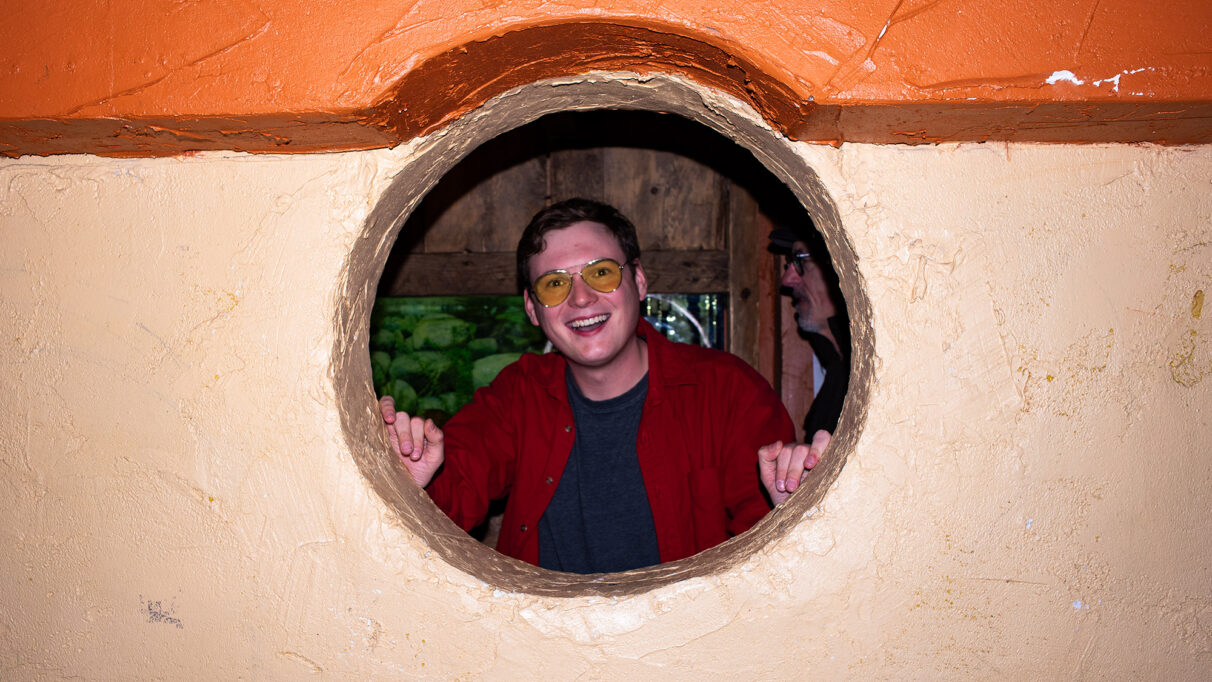
caption
Isaac Morrell, photographer and first time attendee of Discotheque Halifax, peers through a hole in the wall at the Seahorse.Isaac Morrell frequents the Seahorse Tavern, but it was his first time at Discotheque.
“Listen, my heart goes out to you if you’re mixing on vinyl. Like these guys are shredding it though, like oh my god, they know their stuff,” he said about Samuel and Tolliver.
The needle on the turntable can also jump or skip.
“We talk about the ego of mixing, stuff where you’ve got to let your ego go,” said Samuel. “It’s really just about the dance floor and people having a good time and you presenting them good music … You don’t have to do flashy mixes, or if your mix is failing, just hit the fail safe and just let go. Move on.”
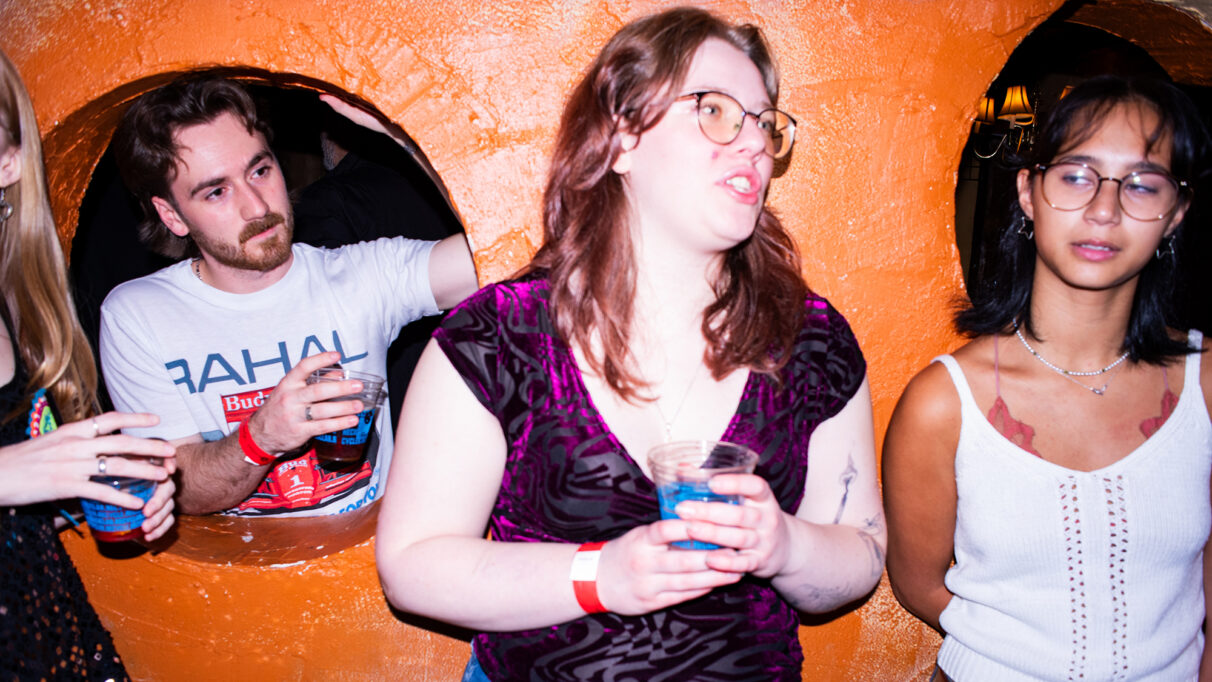
caption
NSCAD students who attended the live vinyl mixing event this past Saturday at the Seahorse tavern.Samuel and Tolliver remain enamoured by vinyl DJing, despite the cost and challenges.
“There’s a pride in me that loves vinyl,” said Tolliver. “I think using vinyl can deepen your connection with music, and I think my love of music would be different if it wasn’t for vinyl.”
Disco at Discotheque
Disco music in North American nightlife is in decline but disco itself remains in the cultural zeitgeist — 90s hip hop and modern pop music consistently sample disco beats.
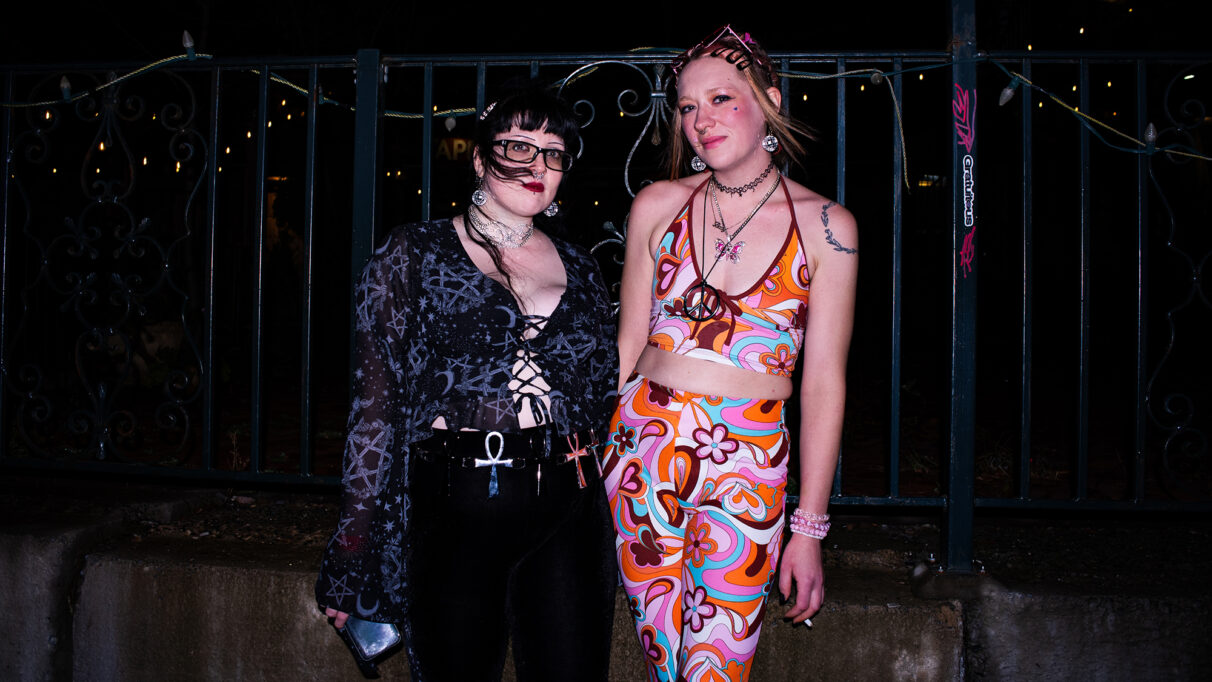
caption
Autumn Brekelmans and Chelsie Chicoine, two of the attendees for Discotheque Halifax, dressed in full disco outfits.“I think they come, and they get a night that they’re not going to get anywhere else in Halifax,” said Samuel about why people come to Discotheque.
“We use this term ‘relevance’ and often that word makes me cringe a little,” said Samuel. “I don’t think this music is irrelevant or disposable. It’s something that you can love forever.”
About the author
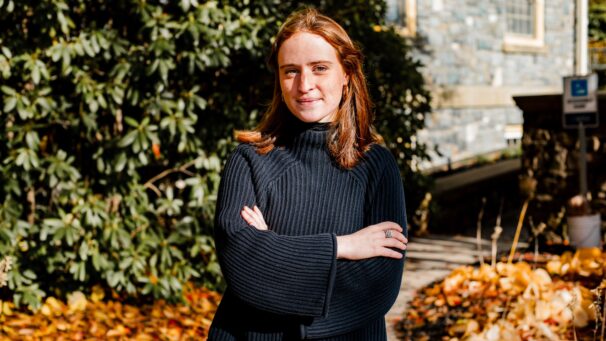
Martha Cope
Martha Cope is a student in the master of journalism program at the University of King's College. She has an undergraduate degree in history...

